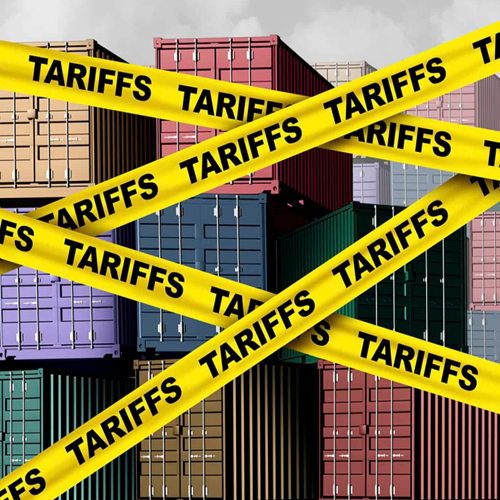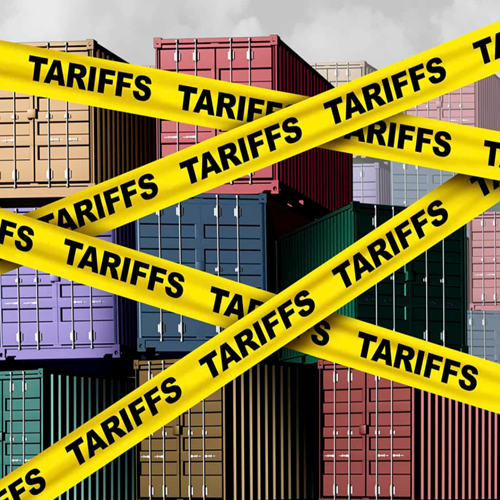Posted Mon, Jun 8, 2020 11:17 AM
NESG webinar on Nigerian Digital Economy and post-pandemic strategies

The Digital Economy Policy Commission of the Nigerian Economic Summit Group (NESG) held a webinar on Thursday, May 28th, 2020 with the theme “ Assessing the impact of COVID-19 on the Nigerian digital economy and post-pandemic strategies.”

Mr. Bunmi Akinyemiju, facilitator of the NESG digital economy policy commission during his presentation said that the COVID-19 has affected the world from a human and economic standpoint. He said the digital economy can help reverse the negative impact on the economy and while some businesses have thrived and others suffered, the NESG digital economy policy commission was helping to provide a constant feedback loop. He also revealed that Nigeria’s digital space needs to adopt the Triple Helix model of the education sector where the regulatory agencies, private and public sectors come together to deliver a viable digital economy.
The vice-chairman of the NESG, Mr. Niyi Yusuf welcomed everyone to the session and said the conversations will allow us to explore how the public and private sector can solve the problems posed by COVID-19 and also help create new opportunities.

The honorable minister for communications and digital economy, Dr. Ali Isa Pantami said the pandemic has changed human interaction and brought to the fore the importance of digital and technological use in the modern world. He said that the digital economy offers Nigeria an opportunity to diversify and the National policy on the digital economy has 8 critical pillars including developmental, digital literacy, solid infrastructure, service infrastructure, digital services, and indigenous content.’’
Furthermore, Dr. Pantami revealed that 60 percent of the world economy will be digitalized by 2022 and the pandemic has necessitated virtual economies and administration, stating that it is important we leverage this for the development of our economy. “The pandemic has disrupted our normal lives but virtual classes can’t be conducted in rural areas as a result of broadband penetration and digital literacy. Commerce, cybersecurity, healthcare and so much more has been affected.” On 19th of March, 2020, His Excellency, the president of the federal republic of Nigeria, Muhammadu Buhari launched the National policy on digital economy and the target is to make at least 90 percent of Nigeria’s population have access to broadband and various security agencies in Nigeria have been directed by the president to protect broadband infrastructure.” The Honourable minister concluded.

The country director of Google, Mrs. Juliet Ehimuan-Chiazor mentioned that if growth is stimulated in Nigeria’s tech space, a lot of tech-enabled solutions will be made available and that government support is required for the digital economy to thrive. She also said stated that “Google has been actively investing in building Nigeria’s digital ecosystem. We have trained 10 million people across Africa and the training is administered in partnership with private and public sectors.”
Mr. Jan Day, vice-president of global business development and strategic partners, Certiport said that digital literacy was important and that more people need digital and technological skills in a post COVID19 world. “Teachers need to be given incentives to help themselves, students, and the general population thrive.” He concluded.
Mr. Kassim Sodangi of the National information technology development agency (NITDA) revealed that the agency has setup a government digital service and innovation and ideation framework that will help understand public-private partnerships and accelerate resources and capabilities to deliver a digital economy.
At the commencement of the second plenary session, Honourable Legor Idagbor, Chairman House Committee on Nigerian Content Development and Monitoring said the COVID-19 pandemic has presented opportunities for Nigeria’s ICT sector and Nigeria must build capacity both internally and externally to thrive.
While delivering his presentation, Professor Omotayo Fakinlede, professor of computational mechanics at the University of Lagos said that ‘” COVID-19 is war. We are at war and how we react to it will determine our survival.” He also stated that while we move to digitalize our world, we need to be careful to balance the need for localization with leveraging global standards and practices.
Professor Umar Danbatta, Executive Vice-chairman and Chief executive officer of Nigeria Communications Commission (NCC) said Nigerians are highly innovative and enterprising and that the country has the capacity to drive post-COVID-19 pandemic economic recovery. He also mentioned that the waiving of the Right of Way charges by the governments of Ekiti and Kaduna states will encourage broadband penetration and his commission will like to see more states emulate then laudable gestures of the mentioned states.

The vice-president global operations of Andela, Ms. Omowale David-Ashiru reiterated the importance of local talent and mentioned that the impact of the COVID-19 pandemic will be felt in the future. She however mentioned that the future is digital and remote. “Nigeria has brilliant people who can deliver remotely. Remote work has processes, tools, and workflows and there is a need for us to upscale our talents to be compliant.” Ms. David-Ashiru stated.
The special assistant to the governor of Ekiti state on investment, trade, and innovation, Mr. Akin Oyebode revealed that infrastructure is a major constraint for rural areas. The goal is to democratize opportunities by creating an enabling environment for broadband penetration and infrastructural development. He stated that telecoms make up 14 percent of Nigeria’s GDP and that Ekiti state intends to anchor its economic development on the digital space.
Mr. Kazeem Oladepo, who represented the CEO of Main-one Cable, Mrs. Funke Opeke stated that his company was building training and development capacity and that they will continue to provide support to students and local companies to boost the Nigerian digital economy space. While bringing the webinar to an end, Mr. Chris Abhulime, Lead E-governance thematic group of the Digital Economy Policy Commission of the NESG and moderator of the webinar thanked all participants and says both the public and the private sector should leverage on partnerships for the development of Nigeria’s digital space.
At the end of the webinar, the key action points agreed by the stakeholders include creating a public private partnership (PPP) platform on the pillars of digital economy, extension of solid Infrastructure and Broadband in rural areas through policies, establishment of IT Infrastructure at educational institutions, upscaling the curriculum to focus on digital skills, collaborating and partnering in the training of local talent and capacity in Nigeria.

Find a blog post
Latest Releases

Strategic Implications of US Rec .. Read
3 days ago

Strategic Implications of US Rec .. Read
5 days ago

Engagement Towards a Successful .. Read
2 days from now
